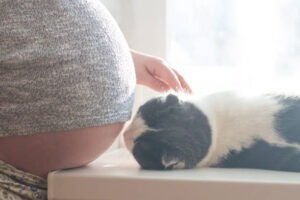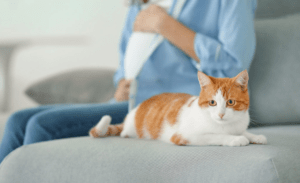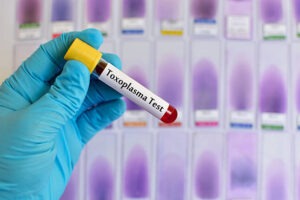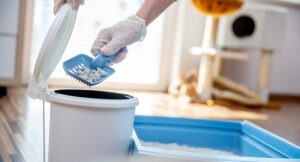 Cleanliness is next to Godliness, and it all begins from the state of our mind, body, and character. But these depend on our surroundings too that we live in, which plays an essential role in our well-being. Thus, we always ensure that our homes and compounds are clean since dirt enhances the breeding ground for pathogens, bacteria, viruses, and flu cases.
Cleanliness is next to Godliness, and it all begins from the state of our mind, body, and character. But these depend on our surroundings too that we live in, which plays an essential role in our well-being. Thus, we always ensure that our homes and compounds are clean since dirt enhances the breeding ground for pathogens, bacteria, viruses, and flu cases.
However, let’s not forget that even the pets and animals we keep at home could be the medium for contracting some infections that will threaten our health. For instance, cats being one of the best friends and a virtual pet in our homes could be the breeding medium between parasites and humans. Hence, we should always be careful while cleaning their kitty litter, especially pregnant women.
Table of Contents
What Makes Kitty litter Bad for Pregnancy?
If you ever wondered why kitty litter is harmful to pregnancy, then believe it is right, and you should try as much as possible to refrain from cleaning the kitty litter. This is because cats excrete parasites in their feces that can be a threat to your fetus or an inborn. The parasite causes an infection called Toxoplasmosis, which causes typically minimal symptoms or might be entirely undetected in most humans. Cats spread Toxoplasmosis through their feces after eating contaminated raw meat, rodents, or coming into contact with an outdoor cat. Therefore, when a pregnant woman volunteers to clean the kitty litter of an infected cat, she is highly exposed to the parasite. Suppose she touches her mouth, eyes, or any opening part of her body after coming into contact with the parasite. In that case, she may become infected, exposing her fetus or inborn at risk either at birth or in the future.
How Does Toxoplasma Gondii From?
Toxoplasmosis is caused by a protozoa organism called T. gondii that can be infected to any mammal which serves as an intermediate host. So once the cat has come into contact with the protozoa, it will lay eggs in the cat’s intestinal tract, then excreted as potential oocysts, which will require another mammal to incubate for an incubation period of one to five days. Thus, when a pregnant comes into contact during the incubation period while cleaning the litter box and then, without washing her hands, touch her mouth and ingest the oocysts, which will eventually infect her to Toxoplasmosis.
What Are the Risks to the Baby After Infection?
The chances of most pregnant women contracting Toxoplasmosis from cats are relatively low if their cats stay indoors and are being fed commercial and certified packaged cat foods. She is positively exposed to toxoplasmosis infection if her cat feeds on raw meat, undercooked meat, infected rodents, and mix up with an infected outdoor cat. But if she gets infected before birth, the infection can cause the following to the baby or an unborn:
•  Miscarriage
Miscarriage
• Stillbirth
• Severe eye infection or other eyes complications
• Brain damage
But if the baby doesn’t show any toxoplasmosis symptoms, in the future, they may have blindness or intellectual disability as a result. And if pregnant women are infected while their immune system is weakened due to HIV or undergoing chemotherapy treatment, the infection may affect their eyes or brain.
How to Check if You Are Infected?
Toxoplasmosis does portray flu-like symptoms that usually or mostly go unnoticed, and you may not realize you had it. But it is crucial to know the kind of symptoms this infection shows, they include:
 • High temperature
• High temperature
• Aching muscles
• Tiredness
• Feeling sick
• Sore throat
• Swollen glands and lymph nodes.
In the situation of the infected pregnant succeeding to battle, the symptoms unnoticed, which generally gets better on their own within about six weeks, remember the unborn might have complications after birth.
How to Take Precautions to Avoid Getting Infected from the Cat?
Even though pregnant women should try to give up on their cats or get rid of her; thus, it will be cruel or unjust to the cat and you. Furthermore, she is part of your family. This is because you can adhere to some risks and precaution measures to avoid getting infected, spreading the parasite, or if you just decided to clean up the cat litter. Below are precautions measures to take:
• Avoid feeding your cat undercooked meat, feeding raw meat, or feeding on rodents.
• Wear rubber hand gloves when cleaning or changing the cat litter.
• Wash your hands immediately after cleaning the cat litter and avoid coming into contact with an infected cat to prevent ingesting the oocysts.
• Wash or change the cat litter daily to stop the parasites from incubating; remember the oocysts hatches within 1-5 days of which during this period is when the infection can be transmitted.
• Wash the cat litter thoroughly using water with detergent, soap, or disinfectant.
• Keep your cat indoors and do not let it come into contact with the straying cats.
• Wash the scooping used to scoop the cat litter immediately after use to avoid spreading of the oocysts.
• You can ask your spouse, friends, relative, or a neighbor to help out with the litter box duties while you are pregnant.
• If you have a cat while pregnant, always take a routine blood test for toxoplasmosis infection, and medication should be administered to reduce the risk of complications to both of you.

It is important to note that this infection is spread by the cat only. You can still contract it by eating undercooked meat from infected animals, raw vegetables and fruits, other animals, and visiting some places with humidity a high prevalence of toxoplasma. And in case there is any evidence of infection to the baby while pregnant, you should be prescribed to take antibiotics for the rest of your pregnancy, and after birth, the baby should continue to take them for one year.
Conclusion
When you found out you are pregnant, there is no need to avoid your cat or getting rid of it. Just take the precaution mentioned above, and you will stay safe during your pregnancy period. Furthermore, after birth your kid will not lack a company at home when she has a pet to play around with while her parents aren’t everywhere.
